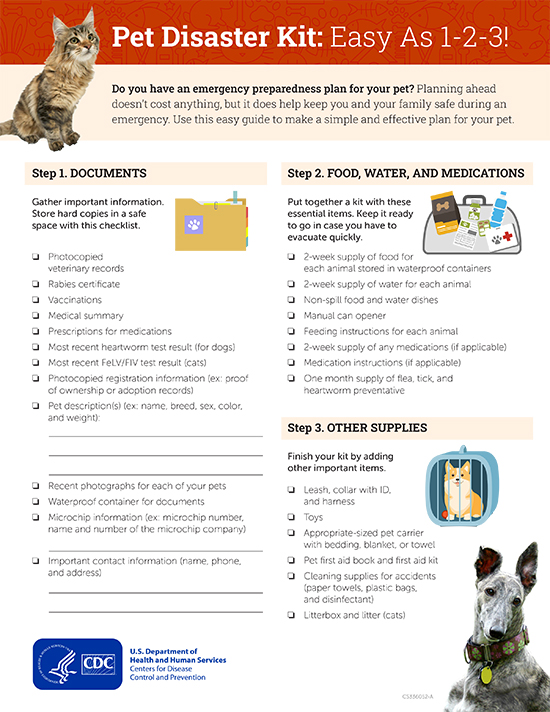In these uncertain times, it has become more critical than ever to be prepared for emergencies. As pet owners, we love our furry friends and want to ensure their safety and well-being in any situation. That’s why today I want to talk about emergency preparedness and how we can keep our pets safe during a crisis.

Imagine a scenario where a natural disaster strikes your area, or even a sudden household accident occurs. It’s a stressful time, and amidst the chaos, we may forget about our four-legged companions. However, with some careful planning and preparation, we can ensure their safety and give ourselves peace of mind.
The first step is to create an emergency kit specifically tailored for your pet. Assemble a backpack or container with essential supplies that can last for at least three days. Include items such as food, water, medications, veterinary records, a leash, a collar with identification tags, toys, and comfort items like blankets or beds. Don’t forget to pack a few extra bowls for food and water.
It’s also crucial to have a properly sized pet carrier or crate available. In case of evacuation, your pet will need a secure and comfortable place to stay. Ensure the carrier is clean, well-ventilated, and labeled with your contact information, including your name and phone number. Additionally, make sure your pet is familiar and comfortable with being confined in the carrier so that they feel less stressed during an actual emergency.
Next, research pet-friendly evacuation centers or shelters in your area. Not all shelters accept pets, so it’s essential to know where to go in advance. Be aware that some hotels or motels may open their doors during emergencies and allow pets, but again, do your research and have a list of options ready. Make a note of their contact information and any specific requirements they may have, such as proof of vaccinations or the need to bring your pet’s supplies.
While preparing for emergencies at home, it’s crucial to have a plan in place for your pet’s care. Identify a designated caregiver, such as a trusted friend or family member, who can take care of your pet if you’re unable to do so. Share your emergency preparedness plan with them, ensuring they have access to your pet’s emergency kit and know your pet’s routine, dietary needs, and any medical conditions.
Additionally, if you live alone or have limited mobility, it’s important to notify neighbors or nearby friends about your pet’s presence. In an emergency, they can help ensure your pet’s safety and well-being.
Identification is another critical aspect of pet emergency preparedness. Ensure your pet is microchipped and that their information is up to date. Collars with identification tags should also be worn at all times. Having your contact information easily accessible can significantly increase the chances of being reunited with your pet in case of separation during a crisis.
To further prepare, familiarize yourself with basic pet first aid. Take a pet CPR and first aid class or research reliable resources online. Knowing how to respond to common injuries or illnesses can make all the difference in an emergency situation. Remember, it’s always important to consult a veterinarian for any specific medical concerns or guidance.
Lastly, during a crisis, it’s crucial to remain calm and reassuring for your pet. Animals can sense our stress and anxiety, which can further escalate their distress. Stay composed and do your best to provide a sense of safety and comfort for your furry friend. Keep a calm demeanor, offer gentle reassurance, and stick to your pet’s routine as much as possible.
Emergency preparedness for our pets should never be taken lightly. By following these steps and planning ahead, we can ensure our pets’ safety and well-being during times of crisis. Remember, they rely on us for their care, and it’s our responsibility to be prepared. So take the time to create your pet’s emergency kit, research pet-friendly shelters, designate a caregiver, ensure proper identification, and stay calm. Together, we can face any emergency situation and keep our beloved pets safe.


